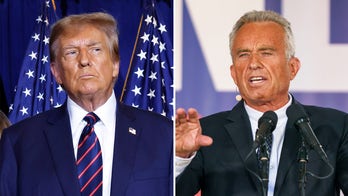Sen. Marco Rubio of Florida on Monday said he plans to oppose the confirmation of a U.S. ambassador to Cuba unless “substantive progress is made” on a few issues.
In a letter send to Secretary of State John Kerry, Rubio said he would not back the controversial Cuba deal unless the island’s leaders improved the country’s human rights record and agreed to a slew of concessions.
Since President Barack Obama announced a thaw in relations between the United States and its Cold War nemesis, the two countries have been involved in discussions on reopening embassies in each other’s capitals and appointing new ambassadors, among other topics.
The last set of face-to-face talks ended two weeks ago with enough common ground that the top U.S. diplomat for Latin America, Roberta Jacobson, told reporters, “I don’t know that we will need another round of talks."
But Rubio, who is running for the Republican presidential nomination, is urging the talk to continue.
“Establishing diplomatic relations with the Castro regime without verified improvements in the [human rights] situation faced by the Cuban people would not be consistent with our values as a nation and the intent of the U.S. Congress, as codified in law,” he said in the letter.
Rubio’s parents moved to the United States from Cuba in 1956, three years before the Castro revolution, and he grew up in the South Florida cauldron of anti-Castro sentiment. He seemed to suggest that an agreement without concessions amounted to an endorsement of Cuba’s deplorable human rights record.
“Despite more than five months of discussions with the Cuban government,” Rubio wrote to Kerry, “I am very concerned about the lack of political reforms and progress on human rights, the continued harboring of known terrorists and other fugitives from U.S. justice, the outstanding American property claims and judgments against the Cuban government and the limitations that continue to be placed on American diplomats working in Havana.”
No timetable has been given by the U.S. State Department suggesting how quickly embassies will be reopened or ambassadors appointed.
The Cuban government had held the removal of the communist country from the U.S.’s “state sponsors of terrorism” list as a prerequisite of reopening embassies. That move occurred at the end of last week, after a 45-day window in which congressional Republicans could have formally objected to the change expired.
While Rubio on his own won’t be able to block a President Obama nominee, he could drag out the process by encouraging his colleagues to bitterly oppose the nominee’s confirmation.
“I hope to see a free and democratic Cuba,” Rubio said. “But that means we must confront the authoritarian Castro regime that suppresses its own people, not acquiesce to their demands.”
Like us on Facebook




